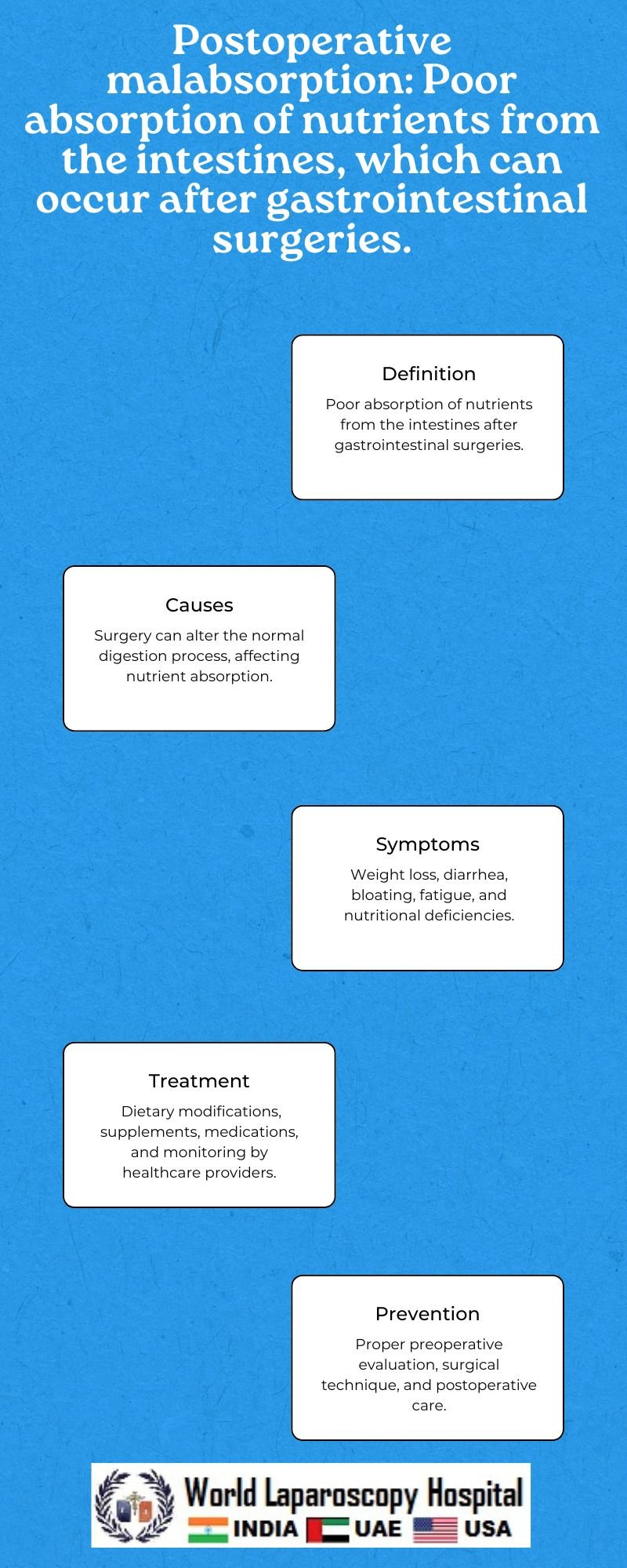Introduction
Postoperative malabsorption is a condition characterized by the poor absorption of nutrients from the intestines following gastrointestinal surgeries. This can have significant implications for the patient's nutritional health, leading to deficiencies in essential vitamins, minerals, and other nutrients. Understanding the causes, symptoms, and management of postoperative malabsorption is crucial for healthcare professionals to provide optimal care for their patients.

Causes of Postoperative Malabsorption
Postoperative malabsorption can occur due to several factors related to gastrointestinal surgery. One of the primary causes is the surgical alteration of the gastrointestinal tract, such as gastric bypass surgery or bowel resection. These surgeries can disrupt the normal digestive process, leading to reduced absorption of nutrients.
Another common cause is the removal or bypass of parts of the intestines, which can result in a decrease in the surface area available for nutrient absorption. Additionally, surgeries that affect the production or secretion of digestive enzymes, such as pancreatic surgery, can also contribute to malabsorption.
Symptoms of Postoperative Malabsorption
The symptoms of postoperative malabsorption can vary depending on the extent of nutrient deficiency and the specific nutrients affected. Common symptoms include:
Diarrhea: Due to the unabsorbed nutrients drawing water into the intestines, leading to loose stools and dehydration.
Weight loss: As the body fails to absorb enough nutrients, patients may experience unintentional weight loss.
Fatigue and weakness: Nutrient deficiencies can lead to fatigue, weakness, and overall reduced energy levels.
Vitamin and mineral deficiencies: Malabsorption can result in deficiencies of vitamins (such as vitamin D, B12, and K) and minerals (such as iron, calcium, and magnesium), leading to various health problems.
Management of Postoperative Malabsorption
The management of postoperative malabsorption involves a multidisciplinary approach, including dietary modifications, supplementation, and close monitoring of nutritional status. Some of the key strategies for managing postoperative malabsorption include:
Diet modification: Patients may need to follow a specialized diet that is high in nutrients and easily digestible. This may include avoiding certain foods that are difficult to digest or that may exacerbate symptoms.
Nutritional supplementation: Patients may require supplements of vitamins, minerals, and other nutrients to correct deficiencies and ensure adequate nutrition. These supplements may be in the form of pills, liquids, or injections, depending on the patient's needs.
Monitoring and follow-up: Patients with postoperative malabsorption should undergo regular monitoring of their nutritional status to assess the effectiveness of treatment and make any necessary adjustments. This may involve blood tests to check for nutrient deficiencies and other markers of nutritional health.
Medications: In some cases, medications may be prescribed to help manage symptoms of malabsorption, such as diarrhea or nutrient deficiencies.
Lifestyle changes: Patients may benefit from making lifestyle changes, such as quitting smoking, reducing alcohol consumption, and maintaining a healthy weight, to improve their overall health and well-being.
Conclusion
Postoperative malabsorption is a common complication of gastrointestinal surgery that can have significant implications for patients' nutritional health. Understanding the causes, symptoms, and management of this condition is essential for healthcare professionals to provide effective care for their patients. By implementing appropriate dietary modifications, supplementation, and monitoring, healthcare providers can help patients manage postoperative malabsorption and improve their nutritional status and overall quality of life.